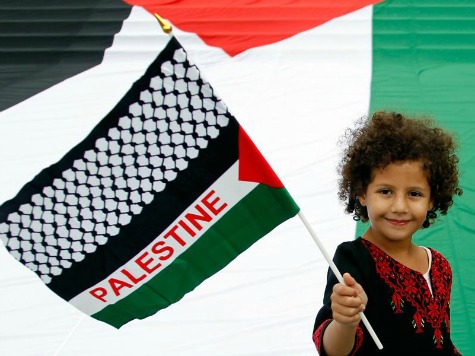European frustrations with the lack of progress towards a two state solution between Israel and the Palestinian territories have prompted comments from officials that EU aid to Palestine could diminish substantially within the next three to four years.
“It is clear that our policy is not sustainable in the medium-term without some form of political breakthrough and money alone has not succeeded in producing that,” an EU official told EurActiv. “It was meant to accompany a political process, but that’s not really happening.”
The move would be a major blow to the Palestinian Authority, as the EU is currently its biggest donor, contributing some €500 million per year. A number of Palestinian functionaries in Ramallah are paid from EU funds.
The Commission has recently completed an in depth review of aid spending in the Palestinian Territories between 2008 and 2013, interviewing some 150 stakeholders in Brussels, Israel, Palestine and Washington. Numerous documents were also scoured by the team.
From their enquiries, the authors were able to conclude that the EU is the Palestinian Authority’s most reliable partner and largest contributor, and also that “The EU has played a pivotal role in PA state-building efforts, including by promoting strong, democratic institutions and engaging with civil society.”
However, they were also forced to conclude that “the lack of democratic process has left Palestinians with virtually no mechanism for holding the PA accountable,” and that on the contrary EU funding was in fact thwarting efforts to achieve democratic accountability.
They also concede that there is no real method for ensuring the effectiveness of the spending; a point reiterated in their three recommendations, which include putting in place either a “results based approach” in which the money is handed over either in advance but only for specific projects with measurable outcomes, such as water infrastructure building, or “results based finance” in arrears after the success of a project can be proved.
The language of the report makes the institutional bias against Israel very clear. For example the report cites “Israeli occupation and settlement policies and the political division of the West Bank and Gaza” as the two main stumbling blocks on the road to peace, but makes no mention of the Palestinians refusal to accept the legitimacy of the state of Israel, nor the constant rocket attacks against the civilian population carried out by Hamas.
This bias was also clear in the comments from interested parties. For example, Christopher Gunness, a spokesman for the UN relief and works programme (UNRWA) told EurActiv “Addressing the underlying cause of the conflict – the blockade and occupation [by Israel] – would clearly mean that European taxpayers’ money was better spent, and emergency assistance would be unnecessary.”
Israel also faces calls to pay for damage done by the Israeli Defence Force to Palestinian buildings built using EU money. “The EU should stand up for its taxpayers and demand compensation from anyone who has destroyed EU-owned infrastructure,” said Pieter Cleppe, the director of Open Europe Brussel. “If the infrastructure has already been donated and the EU doesn’t own it anymore, then the EU could endorse a claim from the new owner.”
The questions now raised over continuing funding appear to have been prompted by concerns over whether the EU can continue to lavish such spending on the Palestinian Authorities at a time when it is imposing austerity across Europe. The efficacy of such funding does not appear to have been challenged from within.
However, the EU has long faced criticism over its funding of the Palestinian Authorities in this way. For example, back in 2008 the British Conservative Member of the European Parliament Daniel Hannan wrote in a blog “it is becoming increasingly clear that overseas aid is arresting a political settlement in the region. … Palestinians receive more assistance, per capita, than any other people on Earth, and live in one of its most violent spaces. The two facts are connected.
“A capitalist Palestine, in which citizens looked to themselves rather than to the state, would be more stable. Its propertied classes would have a stake in civil order. Its businessmen would have an incentive to remain on cordial terms with their customers, including those in Israel.
“None of this will happen, however, as long as Palestinians remain trapped in the squalor of dependency. The EU, in its well-intentioned but doltish way, is fuelling the conflict.”

COMMENTS
Please let us know if you're having issues with commenting.